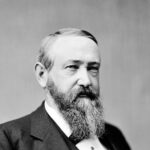Holy Experiment Day is an annual holiday celebrated on March 4 to encourage general tolerance toward religious practices different from ours. The importance of the story the holiday commemorates is also the precedence for the core beliefs the establishment of Pennsylvania, and ultimately, the United States was based on: religious tolerance, diversity, and representative government. William Penn Jr, son of English Admiral Sir William Penn, played an important role in the creation of the colony. He envisioned a colony full of people who embraced faith and were tolerant to the religion of others, influenced by his early experience in England where members of the Quakers sect were chastised for their beliefs.
History of Holy Experiment Day
‘Holy Experiment’ was the term William Penn chose to describe the ideal government he established within the territory of modern-day Pennsylvania state, granted to him as repayment of the debt owed to his dad by the British monarchy. The importance of the event to America’s history and the hallmark of its existence is what Holy Experiment Day aims to commemorate. After witnessing the brutal intolerance of minority religious sects in Britain and being imprisoned himself, Penn sought to establish a colony of people who embraced faith and were tolerant to the religion of others within his newfound territory in 1681.
The origin of the term came from Penn’s belief that the charter which King Charles II signed to grant him the 29 million acres of land was a gift from God. He believed it was a divine assurance to proceed with his intention to build a safe haven for minority religious groups, saying, “that an example may be set up to the nations: there may be room there, though not here, for such a holy experiment.”
As a member of the Religious Society of Friends more popularly known as Quakers, Penn believed that their knowledge of and communion with God’s divine authority meant their principles, which included religious and political freedom and general pacifism, would be successfully established. Therefore, the new colony saw its very first law guaranteeing freedom and tolerance for all religions who “shall confess and acknowledge one Almighty God to be the Creator, Upholder, and Ruler of the world.” Unfortunately, Penn’s surmission would prove false as political, economic, and even religious conflicts would work against the spiritual foundation of the Experiment after the first few years.
Today, Holy Experiment Day is a day to experiment with different religions, modes of worship, and prayer. People share their faith and beliefs with family, friends, and members of their community. In turn, they consider the beliefs of others or try out a new religion for a day. All of this encourages the larger community to be more open-minded and unprejudiced.
Holy Experiment Day timeline
Penn is born and baptized at All Hallows-by-the-Tower Church in London.
Penn meets and befriends the founder of the movement George Fox, traveling frequently with him for the next decade.
Penn publishes the first of many pamphlets denouncing all religious groups in England, once calling the Catholic Church “the Whore of Babylon,” and the Puritans “hypocrites and revelers in God.”
Edwin B. Bronner’s book “William Penn's Holy Experiment: The Founding of Pennsylvania, 1681–1701” is released as the first book to chronicle the event.
Holy Experiment Day FAQs
What did the Holy Experiment emphasize?
Penn’s holy experiment was a religious event that was grounded in his belief in tolerance gotten from his personal experiences. The founders of New England in the early 1600s were Puritans who focused on social and religious homogeneity, excluding everyone else. Penn’s colony was the only non-religious society in that region at the time.
What does the Quaker religion believe?
Quakers believe there is something of God in everybody, every person is equal and of unique worth. They seek truth in inner experience and morality in the human conscience.
Is Pennsylvania named after William Penn?
It was named after his father. William Penn initially requested the name ‘Sylvania,’ which is Latin for ‘forest,’ but the Privy Council added ‘Penn,’ to honor William Penn Sr. Penn fought against this for a while, worried that he would be considered vain for naming his new territory after himself.
How to Observe Holy Experiment Day
Experiment with other religions
Observe Holy Experiment Day by experiencing other people’s religions firsthand. Learn the ropes of the different religions and notice the similarities. There are often parallels in religious practices that make tolerance and dissimilar ideologies easy to navigate.
Pray for a miracle
Use Holy Experiment Day as an exercise in faith and pray for something that seems impossible to happen. Members of the movement that led to the Holy Experiment were generally united in their belief in every human’s ability to experience this unexplainable occurrence from within.
Invite non-religious leaders
Holy Experiment Day started out of the religious intolerance of the ruling English monarch. To observe Holy Experiment Day, invite leaders from other schools of thought to experience your religion and genuinely care to learn about their own beliefs.
5 Things You Didn’t Know About William Penn
The Experiment failed due to Penn's death
The Holy Experiment failed after eight years due to William Penn’s passing and the conflicts between Quakers and non-Quakers over the foundation of a Pennsylvania-backed militia that defied Quaker beliefs.
Penn was an early convert to Quakerism
He was an early convert to Quakerism after befriending its founder at the age of 22.
He co-owned the State of New Jersey
Penn was also an early investor in the Americas and once co-owned much of what is now the State of New Jersey along with 14 other Quaker investors.
Oxford kicked him out
He was expelled from Oxford’s Christ Church College in 1662 for skipping the compulsory Anglican Sunday services.
The largest non-monarchical landowner
After the land grant of 29 million acres, Penn became the largest non-monarchical landowner in the world.
Why Holy Experiment Day is Important
It shows the importance of a leader
The importance of a true leader is evident in the story of the failure of the experiment roughly eight years after it began and a few months after Penn’s death. He was the glue that brought it all together. Holy Experiment Day is a pointer to the leadership qualities of William Penn and a subtle reminder of this fact.
It publicizes the backstory of Pennsylvania’s founding
Holy Experiment day set the precedence for the creation of modern-day Pennsylvania. The reason for its founding was based on religious beliefs. Religious tolerance, diversity, and representative government were the hallmarks of the creation of the colony.
It teaches significant historical lessons
Holy Experiment Day helps us reflect on history and learn from it. The experiment demonstrated the importance of establishing a policy of religious tolerance by allowing all Protestants and Roman Catholics to worship in the territory of Pennsylvania without being compelled to attend Quaker services.
Holy Experiment Day dates
| Year | Date | Day |
|---|---|---|
| 2026 | March 4 | Wednesday |
| 2027 | March 4 | Thursday |
| 2028 | March 4 | Saturday |
| 2029 | March 4 | Sunday |
| 2030 | March 4 | Monday |


































